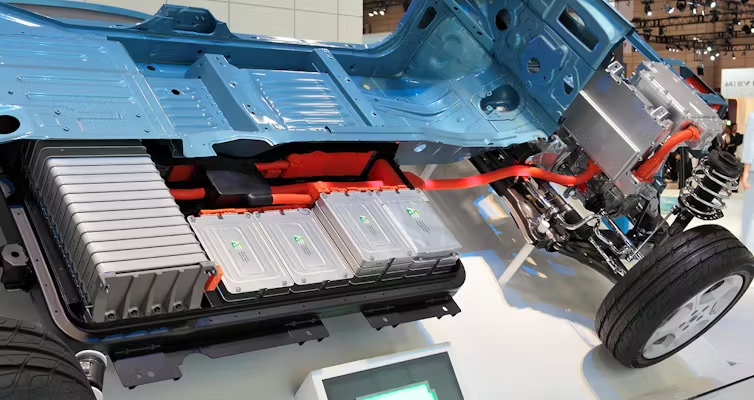Researchers from Clemson University have potentially addressed one of the most significant challenges hindering electric vehicle (EV) adoption: battery fires.
Apparao Rao from Clemson University and Bingan Lu from Hunan University have introduced a self-extinguishing EV battery, as reported by The Cool Down. Their research demonstrates that the battery can withstand extreme conditions, including high temperatures and punctures from a stainless steel nail, without igniting.
This breakthrough was achieved through a relatively straightforward innovation. The researchers replaced the commonly used electrolyte in EV batteries(consists of lithium salt and an organic solvent) with chemicals typically found in commercial fire extinguishers.
“We wanted to develop an electrolyte that was nonflammable, would readily transfer heat away from the battery pack, could function over a wide temperature range, was very durable, and would be compatible with any battery chemistry” the researchers explained in a press release.
According to the research team, a battery utilizing these chemicals can operate for over a year without significant capacity loss. Laboratory adjustments were necessary to ensure the chemicals’ compatibility with batteries, considering factors like toxicity and pollution.
While these findings suggest a promising solution to one of the major issues facing EVs, the researchers primarily focused on potassium-ion and lithium-ion power packs. Further research is needed to understand how this solution interacts with other battery types, such as zinc, sodium, and aluminum-ion.
“If the industry embraces it, we expect that companies will be able to manufacture non flammable batteries using their existing lithium-ion battery facilities,” Rao and Lu stated.

